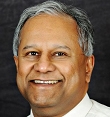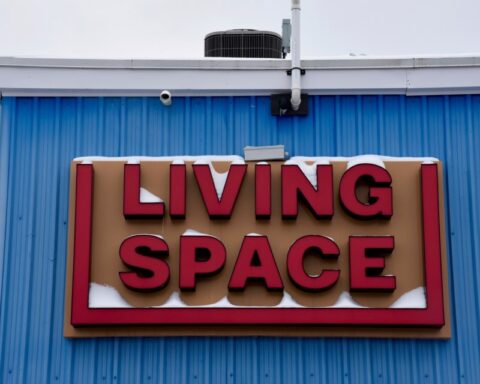“I wanted to be white so bad, and the worst thing I ever did was I was ashamed of my mother, that honourable woman, because she couldn’t speak English,” said Agnes Mills, a former student at All Saints residential school in Saskatchewan.
Mary Courchene, another former student of the residential schools Fort Alexander in Manitoba and Lebret in Saskatchewan, said, “And I looked at my dad, I looked at my mom, I looked at my dad again. You know what? I hated them. I just absolutely hated my own parents. Not because I thought they abandoned me; I hated their brown faces. I hated them because they were Indians.”
Statements like these necessitated the handing out of Kleenex as men and women wept listening to testimony from survivors on a video screen in Ottawa on Tuesday during the release of the Truth and Reconciliation Commission’s (TRC) summary of its final report on Canada’s treatment of aboriginal people at residential schools.
The commission says it amounted to cultural genocide – an attempt to erase their way of life and indoctrinate them into a new culture.
Tracing back that history has been an onerous task, as it stretches back more than a century and has its origins in the churches’ and the federal government’s common goal of assimilating Canada’s aboriginal population into the dominant culture of European and Christian colonialists.
The broader hope is if Canadians have more knowledge of indigenous history, they will have a better understanding of the current policy disputes between governments and Aboriginal Peoples over natural resources, education and child welfare.
The TRC released 94 recommendations as part of a summary of its report. It features a common theme of concern that its work should not be forgotten, but rather lead to concrete steps to improve the lives of aboriginal people in Canada. And that’s keeping with its mandate to gather the written and oral history of residential schools and to work toward reconciliation between former students and the rest of Canada.
The TRC is the legacy of the largest class action lawsuit in Canadian history. When the former students decided to settle out of court with the federal government and four national churches, the commission’s creation was part of the terms to ensure their stories were heard and documented. The gathered testimonies will be kept and managed by a new National Research Centre on Indian Residential Schools at the University of Manitoba in Winnipeg.
Educating New Canadians
The broader hope is if Canadians have more knowledge of indigenous history, they will have a better understanding of the current policy disputes between governments and Aboriginal Peoples over natural resources, education and child welfare.
Of significant importance for new Canadians is the last two of the TRC’s 94 Calls to Action. The penultimate recommendation, “call[s] upon the federal government to revise the information kit for newcomers to Canada and its citizenship test to reflect a more inclusive history of the diverse Aboriginal [P]eoples of Canada, including information about the Treaties and the history of residential schools.”
Perhaps it is time for new Canadians themselves to insist on being better informed of an inconvenient truth to better appreciate the travails of indigenous people – essential because we cannot cherry-pick the history we inherit.
The last recommendation urges Ottawa to replace the current Oath of Citizenship with one in which new citizens swear to faithfully observe the laws of Canada, “including Treaties with Indigenous Peoples.”
A timely reminder of not just building a nation-to-nation relationship between Aboriginal Peoples and the Crown that respects the promises of historical treaties, but also for resetting relationships between the First Nations and the “latest nations.”
The two recommendations are a call to remember the injustices inflicted on one of the founding peoples of Canada now that we are slowly, but surely, coming to know about the other history. The part of our collective past not taught in schools, not part of the citizenship test and not part of the “Welcome to Canada” package.
Time to remember the more than 6,000 aboriginal children who never returned to their homes after being sent to residential schools by the Canadian government.
And perhaps it is time for new Canadians themselves to insist on being better informed of an inconvenient truth to better appreciate the travails of indigenous people – essential because we cannot cherry-pick the history we inherit.
Acknowledging the Dark Legacy of Residential Schools
More than 150,000 aboriginal children were taken from their homes – sometimes by force with the assistance of the Royal Canadian Mounted Police – to attend church-run residential schools that began receiving federal funding in the 1870s.
We need to invest in our collective understanding and put a halt to an enforced mass ignorance to change the way we look at each other, talk to each other and talk about each other.
While many teachers and supervisors were well-intentioned, the residential nature of the schools left young children vulnerable to deviants in their midst. There was a tremendous amount of physical and sexual abuse, and former students raise the common concern of the schools’ intergenerational impact.
As Commissioner Marie Wilson describes in a video posted on the TRC website: “It has left devastating impacts in communities and in families … because many of those learned behaviours are the very ones that those children brought into their own adulthood and then – as the courageous ones are able to say – they did the very same things to their children, in many cases, as had happened to them.”
The last schools closed in the 1990s.
Far too many Canadians, including many peoples of colour and First Nations themselves, are unaware of the Canadian history of colonization of the indigenous peoples and the exclusion of communities of colour. Instead, we need to invest in our collective understanding and put a halt to an enforced mass ignorance to change the way we look at each other, talk to each other and talk about each other.
Dialogue can hopefully foster positive relationships among indigenous peoples and newcomers to help bring about justice and equality for all. Reconciliation for indigenous people is an important first step towards that goal.
Ranjit Bhaskar is a Toronto-based print and online journalist with a newcomer’s keen interest in all things Canadian.
Bhaskar, New Canadian Media’s Toronto Editor, has more than 20 years of experience with leading mainstream international news organizations. He was with Al Jazeera for nine years till 2012 and played a pivotal role in the launch and evolution of its award-winning English language website. He also helped launch TechMail, a technology newspaper, and Eduquity Career Technologies, a web-enabled education and career assessment company.
Ranjit is a Toronto-based writer with interest in Canadian civic affairs, immigration, the environment and motoring. Maytree and Al Jazzera English alumnus.





